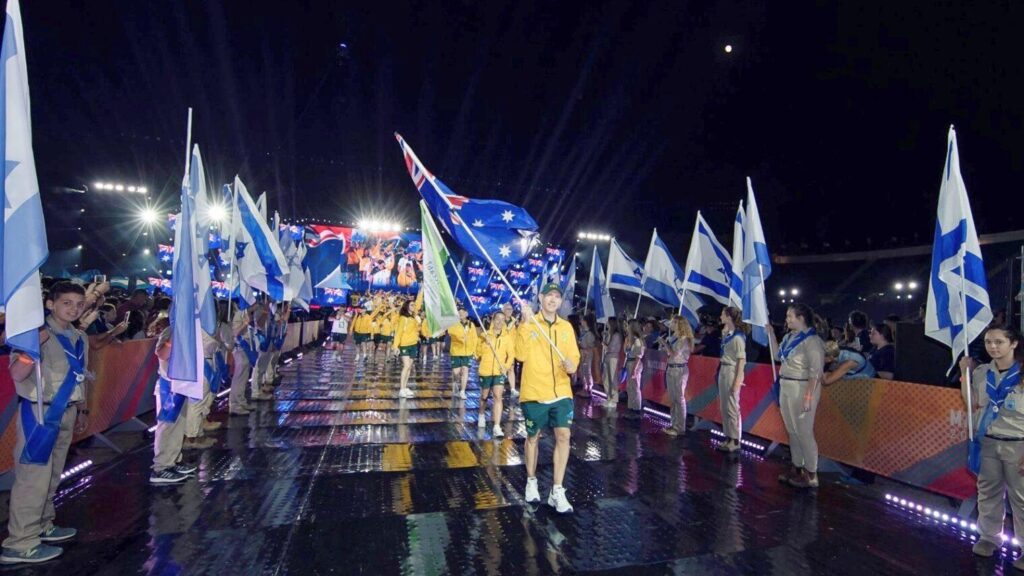The upcoming Maccabiah Games, often dubbed the “Jewish Olympics,” originally scheduled to take place in Israel in 2025, have been officially postponed to 2026. Organizers cited a combination of logistical challenges and global uncertainties as key factors influencing the decision. The rescheduling marks a significant shift for one of the largest international Jewish sporting events, which draws thousands of athletes from around the world to compete in a wide array of disciplines. Officials emphasize that the delay will allow for improved planning and a safer, more inclusive experience for all participants.
Maccabiah Games Postponement Impact on Athletes and Participating Nations
The delay of this highly anticipated sporting event has delivered a significant emotional and logistical blow to athletes who have been training relentlessly for years. For many, the Maccabiah Games represent a once-in-a-lifetime chance to compete on an international platform, and the unexpected postponement disrupts peak performance planning and qualification cycles. Athletes face extended preparation periods, potential funding challenges, and uncertainty regarding sponsorship commitments. Additionally, younger competitors may face difficult decisions about continuing their athletic pursuits or shifting focus to emerging opportunities in the 2026 timeline.
Participating nations must also recalibrate their strategies and resources amid this rescheduling. National organizers are tasked with revising travel and accommodation arrangements, budgeting for the prolonged engagement, and maintaining athlete motivation. Some countries with smaller delegations might struggle harder with financial constraints, impacting their future participation. Below is a summary of key concerns experienced by stakeholders:
- Training disruptions affecting athlete readiness
- Financial strain on national teams and sponsors
- Scheduling conflicts with other international events
- Morale challenges for young competitors
| Stakeholder | Primary Concerns | Potential Solutions |
|---|---|---|
| Athletes | Extended peak conditioning, funding gaps | Flexible training schedules, revised sponsorship deals |
| National Teams | Budget reallocations, logistical planning | Government support, strategic partnerships |
| Event Organizers | Postponement costs, coordination complexity | Enhanced communication, contingency planning |
Analyzing the Challenges Behind the Delay and Its Implications for Israel
The unprecedented delay of the Maccabiah Games to 2026 stems from a complex blend of logistical setbacks and broader geopolitical tensions. Organizers cite ongoing construction delays of key venues and infrastructure challenges exacerbated by supply chain disruptions as primary obstacles. Additionally, heightened security concerns in the region have necessitated a comprehensive reevaluation of safety protocols, directly impacting the event’s timeline. This postponement underscores the intricate balance between ensuring athlete safety and maintaining Israel’s reputation as a premier international sports host.
From an economic and cultural standpoint, the postponement presents several immediate and long-term implications for Israel. Among the challenges:
- Potential loss of tourism revenue traditionally generated by the influx of international visitors
- Disruption to local businesses relying on event-driven commerce
- Impact on community engagement and morale, as the Maccabiah Games have historically played a vital role in fostering Jewish unity worldwide
| Challenge | Implication |
|---|---|
| Venue Construction Delays | Postponed readiness & increased costs |
| Supply Chain Interruptions | Material scarcity affecting infrastructure |
| Security Reevaluation | Heightened protocols, increased expenditures |
| Tourism Revenue Drop | Economic strain for local sectors |
Recommendations for Stakeholders to Navigate the Rescheduled Maccabiah Games Successfully
Stakeholders including athletes, sponsors, and organizing committees are urged to adopt flexible planning strategies to adapt to the revised timeline. Prioritizing open communication channels will be essential to keep all parties informed of evolving schedules and protocols. Leveraging digital platforms for virtual meetings and updates can help maintain engagement and coordination during this interim period. Additionally, revisiting contractual obligations and sponsorship agreements to accommodate the new dates will prevent legal and financial complications.
Key action points to consider:
- Establish a centralized information hub for real-time updates
- Reassess training programs and qualification processes for athletes
- Coordinate with local authorities to ensure infrastructure readiness in 2026
- Enhance contingency planning to mitigate future disruptions
- Engage with community stakeholders to sustain enthusiasm and support
| Stakeholder | Recommended Focus Area | Timeline Adjustment |
|---|---|---|
| Athletes | Training & Mental Preparation | Extended 18-month plan |
| Sponsors | Contract Revisions & Marketing | Update campaigns for 2026 |
| Organizers | Logistics & Infrastructure | New deadlines by mid-2025 |
Concluding Remarks
As the Maccabiah Games prepare to make their return in 2026, organizers and athletes alike are adjusting their plans to accommodate the new timeline. While the postponement marks a delay in the much-anticipated international sporting event, it also offers additional time for preparation and coordination. The global Jewish sporting community continues to look forward to the Games’ revival in Israel, hopeful that the next edition will bring renewed energy and inspiring competition. Further updates will be provided as the rescheduled event approaches.





